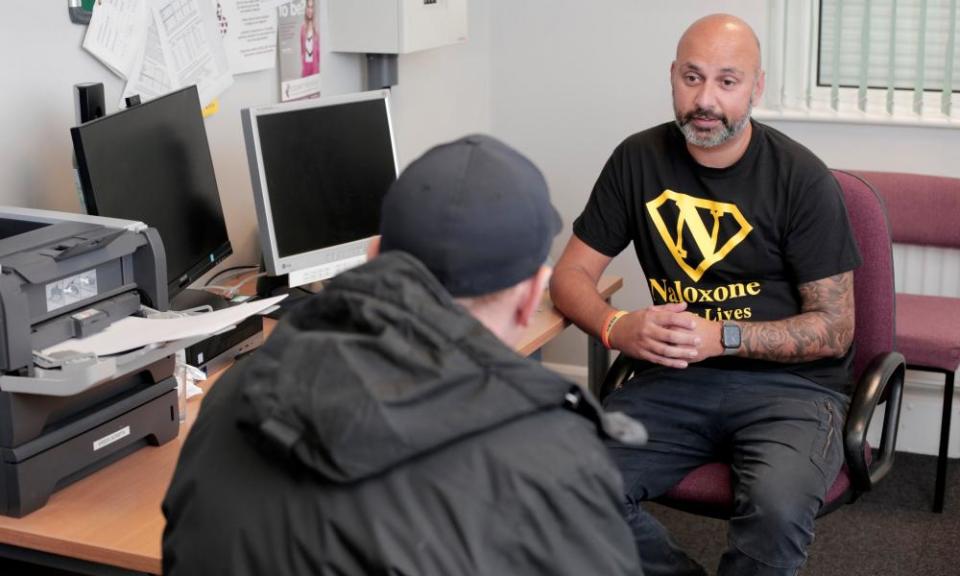Senior UK police officer backs pioneering synthetic heroin clinics

One of England’s most senior police officers has called for a “fundamental change of approach” in tackling England’s drug deaths crisis after watching an addict inject synthetic heroin in a pioneering clinic.
Richard Lewis, the outgoing chief constable of Cleveland police, made the call after visiting the heroin-assisted treatment (HAT) pilot in Middlesbrough, which has the third-highest rate of drug deaths in England after Blackpool and Hartlepool.
Pioneered in Switzerland in the 1990s, HAT involves offering doses of synthetic heroin (diacetylmorphine) twice daily, under the supervision of medical staff. The addicts do not prepare the drugs themselves and must inject them onsite under observation to ensure that none of the prescribed substance can enter the illicit market.
Writing in the Guardian, Lewis urges the government to roll out the pilot nationally to offer a “meaningful alternative to the street drugs that can be bought from organised crime groups”.
He says he sees drug addiction primarily as a chronic health condition rather than a criminal justice problem.
Related: As a chief constable, I’ve seen enough: it’s time to end the ‘war on drugs’ | Richard Lewis
“In 21 years of police service I have slowly, perhaps too slowly, come to the conclusion that framing this crisis as a criminal justice problem has not simply been unhelpful, but counterproductive. This nationwide epidemic is a public health crisis. Having said that, if it’s to be labelled as a problem, perhaps it’s best characterised as a political one,” he writes.
“Most of us have allowed the message on drugs being bad (which they clearly are) to be conflated with addicts themselves being bad simply for using drugs. Let me be clear: some of the most odious and evil acts I’ve encountered in my police service have been perpetrated by drug addicts; but this is not universally true.”
The Middlesbrough pilot, the first of its kind in Britain, started in October 2019, shortly followed by a similar service in Glasgow.
Fourteen people took part in the Middlesbrough HAT in its first year, mostly men aged 35 to 51. Over the first year attendance was 97%, with most participants attending the clinic every day.
During the 12-month pilot, no participants died. Considering the high risk of mortality associated with individuals using opiates, this was “a notable outcome”, according to an independent evaluation report conducted by academics from Teesside University.
Participants’ urine was regularly screened to see if they took illegal drugs as well as the synthetic heroin. Overall, 80% of urine tests were negative for street heroin.
All participants increased engagement with psychosocial interventions, reduced risky injection practices and improved their physical and psychological health. They also had more success in accessing secure housing.
The participants significantly decreased their criminal behaviour too, resulting in a 60% reduction in offences and associated cost savings to the Ministry of Justice (MoJ) of £97,800, the evaluation said.
In all of the years leading up to the HAT pilot, the 14 participants accounted for more than 1,092 offences, with a total MoJ cost of £4.3m.
“The heroin-assisted treatment programme offers the hope, if scaled up on a national level, that demand for illicit drugs can be cut,” says Lewis. “When the state offers a meaningful alternative to the street drugs that can be bought from organised crime groups, the demand for heroin decreases and with it the crimes that fund these expensive habits.”
There were 4,561 deaths related to drug poisoning in England and Wales in 2020, the highest on record.
Lewis is soon to leave Redcar and Cleveland to take up a new job as chief constable of Mid and West Wales.

 Yahoo Finance
Yahoo Finance 